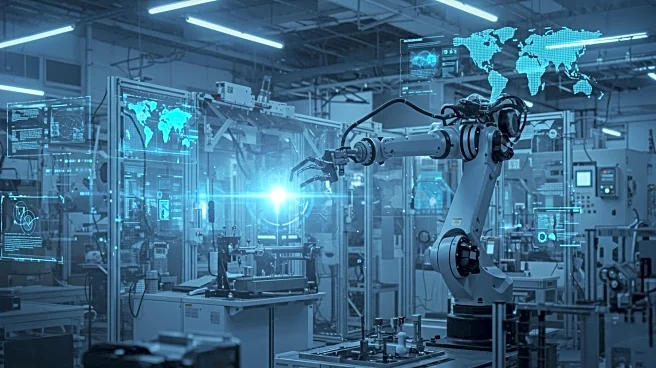What's Happening?
Multinational companies are increasingly deepening their presence in China, capitalizing on the country's advanced technologies and mature industrial ecosystem. This strategic move is aimed at boosting efficiency, driving innovation, and reinforcing supply chain robustness. Foreign-invested companies have recorded a foreign trade value of 7.46 trillion yuan ($1.04 trillion) in the first seven months of 2025, marking a 2.6 percent increase year-on-year. Their exports have reached 4.1 trillion yuan, a 4.9 percent increase from the previous year. Companies like Chiron Machine Tools and Conti Electrical Equipment are expanding their operations in China, leveraging localized innovation and patented technologies to enhance productivity and export capabilities. This growth is supported by China's evolving role as a hub for sophisticated, high-value manufacturing, allowing foreign companies to adopt advanced production processes.
Why It's Important?
The expansion of multinational companies in China signifies a shift in global manufacturing dynamics, with China emerging as a key player in high-value manufacturing and innovation. This development has implications for global supply chains, as companies seek to optimize their operations by leveraging China's cost efficiency and advanced infrastructure. The increase in foreign direct investment in China's manufacturing and high-tech industries highlights the country's growing influence in these sectors. As companies like Corning plan to localize production to meet the demand for advanced technologies, the U.S. and other countries may face increased competition in these areas. This trend could lead to shifts in global trade patterns and economic strategies, impacting industries reliant on manufacturing and technological innovation.
What's Next?
As China continues to advance its infrastructure and industrial systems, multinational companies are likely to further integrate into the local ecosystem, enhancing their production capabilities and expanding their market reach. The focus on green and innovation-driven growth may lead to increased investment in sustainable technologies and practices. Companies may also explore partnerships with local firms to develop new products and solutions tailored to the Chinese market. The ongoing growth in artificial intelligence and computing capacity in China could drive further localization of high-tech production, potentially influencing global standards and practices in these fields.
Beyond the Headlines
The strategic expansion of multinational companies in China raises questions about the long-term implications for global economic balance and technological leadership. As China strengthens its position in high-value manufacturing, other countries may need to reassess their industrial policies and innovation strategies to remain competitive. The ethical and cultural dimensions of this shift, including the impact on local labor markets and environmental sustainability, warrant consideration as companies navigate the complexities of operating in a rapidly evolving economic landscape.










